Ready to take a break from the mid-summer Netflix binge? Pick up some of our highly recommended books:
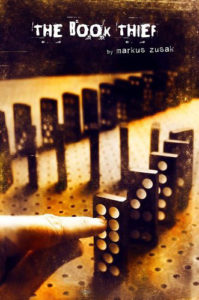 The Book Thief by Markus Zusak
The Book Thief by Markus Zusak
by Sueji Han, staff reporter
The Book Thief by Markus Zusak tells the story of a young orphan girl named Liesel that arrives and meets her foster parents Hans and Rosa in the middle of World War II. As she lives with them, her friendly new father teaches her how to read in private so that she can go to school, and as she learns to read, she grows a passion for books. Later, a Jewish man comes to their house and asks to stay until he has recovered from his injuries. During the Jewish man’s stay, Liesel forms a special bond with him. As the war comes to an end, Liesel faces the problems of losing the lives of her loved ones.
In particular, Zusak’s choice to narrate the book from the point of view of Death is very effective because the description and plot line of the story seem completely different. The story also adds a hint of excitement by not particularly addressing the narrator of the story. The ending also surprised me, as it hit me hard that it’s possible to lose everyone at once and you should always treat the ones you love well when you have the chance. Even though this book takes place decades ago, the story shows that chances with your loved ones are precious.
Gone Girl by Gillian Flynn
by Drew Howerton, section editor
Gone Girl follows Nick an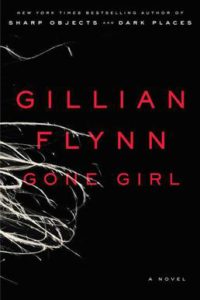 d Amy Dunne, a couple whose marriage has fallen into a slump. Having both lost their jobs as writers, the Dunnes move from upscale New York to rural Missouri in order for Nick to take care of his sickly mother. Nick opens a bar using the last of Amy’s trust fund and although she and her husband are financially stable, Amy longs for the once eccentric life that she and Nick shared. One day, Nick comes home to discover that Amy has gone missing, and is instantly the prime suspect in what appears to be the murder of his wife. Flynn writes Gone Girl in both past and present, with Amy’s perspective told through diary entries spanning her entire marriage, while Nick’s is told in the present as he struggles to prove his innocence and find his wife. As Nick and Amy’s respective timelines begin to catch up to each other, dark secrets are revealed, showing that even the most unassuming people have twisted side behind closed doors.
d Amy Dunne, a couple whose marriage has fallen into a slump. Having both lost their jobs as writers, the Dunnes move from upscale New York to rural Missouri in order for Nick to take care of his sickly mother. Nick opens a bar using the last of Amy’s trust fund and although she and her husband are financially stable, Amy longs for the once eccentric life that she and Nick shared. One day, Nick comes home to discover that Amy has gone missing, and is instantly the prime suspect in what appears to be the murder of his wife. Flynn writes Gone Girl in both past and present, with Amy’s perspective told through diary entries spanning her entire marriage, while Nick’s is told in the present as he struggles to prove his innocence and find his wife. As Nick and Amy’s respective timelines begin to catch up to each other, dark secrets are revealed, showing that even the most unassuming people have twisted side behind closed doors.
Nick and Amy aren’t the only ones with twisted sides. Flynn writes with a dark, almost sadistic purpose as she delves into the minds of a couple with a vendetta against each other. Amy is a bitter perfectionist who lives a double life to please her husband. Nick is an emasculated macho man who squints in the spotlight, feeling that his wife is out to punish him for nonexistent misdeeds.In its analysis of an unhappy marriage, Gone Girl also subverts gender stereotypes, showing cunning, ruthless women and cowering, powerless men. I found Gone Girl to be a clever twist on the normally formulaic thriller genre, painted in shades of grey one moment, splashed with bloody red the next.
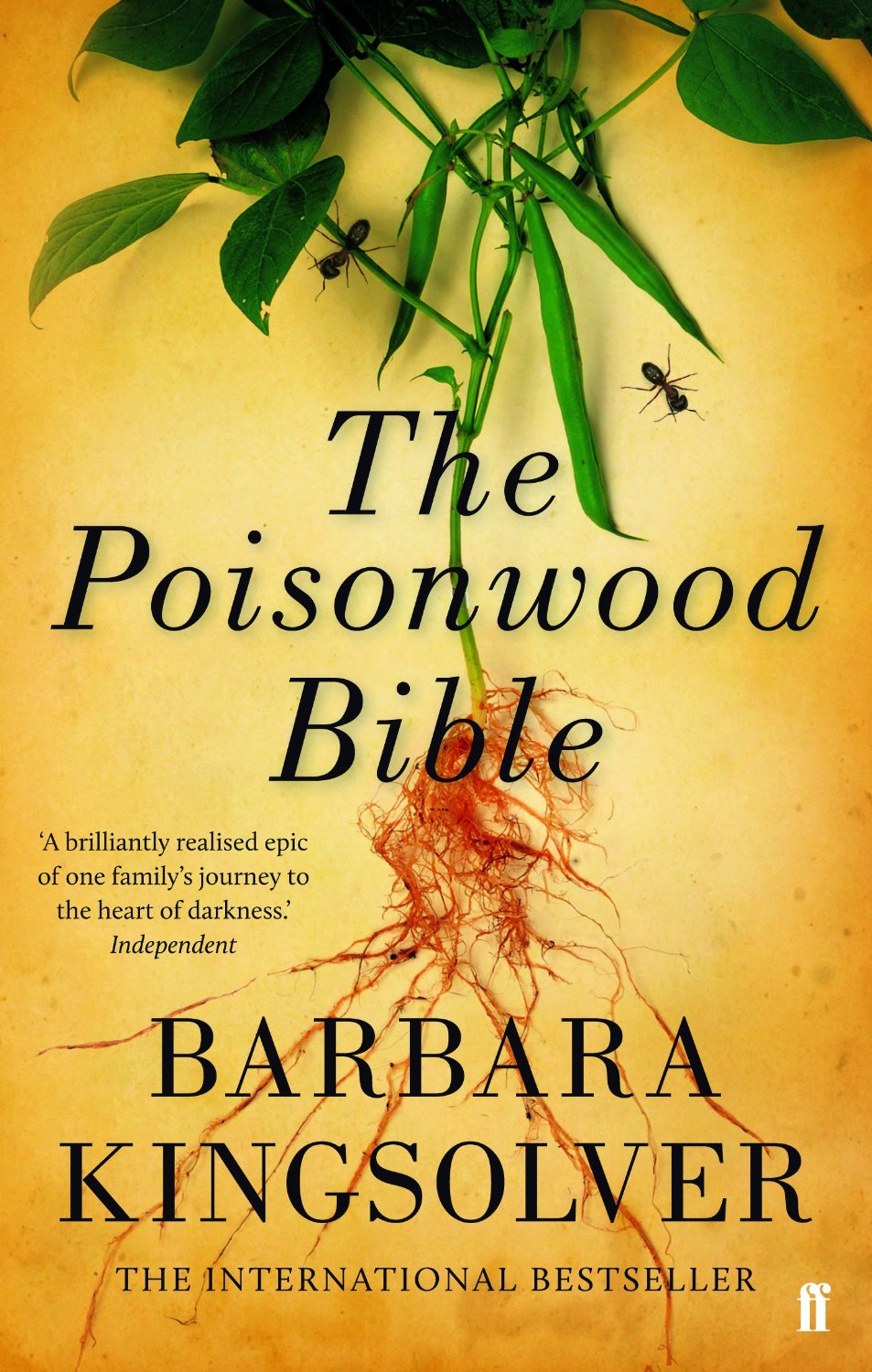 The Poisonwood Bible by Barbara Kingsolver
The Poisonwood Bible by Barbara Kingsolver
by Vi Burgess, editor-in-chief
An award-winning novel that’s found its way onto countless high school reading lists, The Poisonwood Bible is a sometimes heavy-handed novel following a family of missionaries in the Congo during the 1960’s (read: the author had an agenda and it’s really, really obvious). The emotionally abusive Reverend Nathan Price provides the impetus for many of the catastrophes in the novel, yet all of the plot–from the initial landing in the Congo to much of the way through the daughters’ adult lives–is narrated by the daughters themselves, each with an extraordinarily unique voice, against a backdrop of revolution and civil unrest in the Congo. Conflict after conflict befalls the family, from flooding gardens to a river infested with crocodiles to malaria to one of the daughters (Leah) challenging the societal roles (well, more than her white, American, Baptist family had been doing in central Africa already).
The most striking part of the novel is how Kingsolver truly developed separate, yet equally strong, identities for all of the girls while making sure that their parents, Nathan and Orleanna, are multidimensional, strong characters as well. However, in part by the sheer number of tragedies and in part by following the girls throughout their lives, Kingsolver nearly goes over the top with the allegories and Biblical symbolism, even for me, who’s never touched a Bible. The novel’s saving grace is in the beautiful simplicity of the prose and the dedication to the depth of the characters; for that alone, The Poisonwood Bible is and will remain a staple in contemporary American literature.
One More Thing: Stories and Other Stories by B.J. Novak
by Yanichka Ariunbold, section editor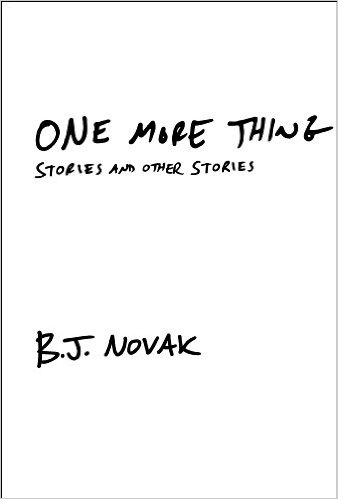
B.J. Novak is most famous for playing Kelly’s douchey, on-and-off boyfriend, Ryan, in the hit TV show series The Office– but unknown to many, he’s also an excellent writer. Though initially hesitant to read Novak’s debut book of short stories, One More Thing: Stories and Other Stories, I found his quirky, perfect-for-unpretentious-humor language and refreshingly modern take on characters immensely entertaining. Some of my favorites of the book include: 1) “Comedy Central Roast of Nelson Mandela,” in which Novak hilariously and meticulously describes a roast typical of the network in question and writes how “visible particles of shame fly from the pores of Jeffrey Ross”; 2) “Sophie,” one of his longer and more serious stories, which houses a new spin on the age-old trope of an AI falling in love and left me surprisingly pensive after its one-line conclusion; 3) “Wikipedia Brown and the Case of the Missing Bicycle,” an absolute gem of a story and an ingenious, modern spoof of Encyclopedia Brown — “Every time we talk to Wikipedia Brown, we get distracted.” So, so true.
Although Novak’s compilation is not particularly consistent as a whole, it’s individually brilliant and an entertaining read for sure!
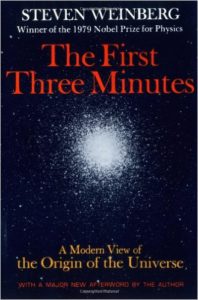 The First Three Minutes by Steven Weinberg
The First Three Minutes by Steven Weinberg
by Josh Weimer, online editor
The First Three Minutes by Steven Weinberg gives insight into the early creation and origins of the universe. While some of the concepts introduced are extremely complex, Weinberg manages to explain them without equations or assumption of previous knowledge (for you nerds out there, the book includes a mathematical supplement after the glossary, which goes into greater detail). Weinberg also discusses the history of discoveries such as the Cosmic Microwave Background, and I found his storytelling enjoyable, as it nicely split up pages of information, which could be dry at times. Although some details are outdated, particularly in his mentions of the steady state model and big crunch, they don’t take away from the eloquent explanation of the universe’s creation. The First Three Minutes is also written concisely, especially considering the fact that Weinberg was able to fit such advanced material into an only 150 page book, while making it understandable for those without a background in physics or cosmology. Anyone looking for a brief, educational read should definitely pick up The First Three Minutes.

